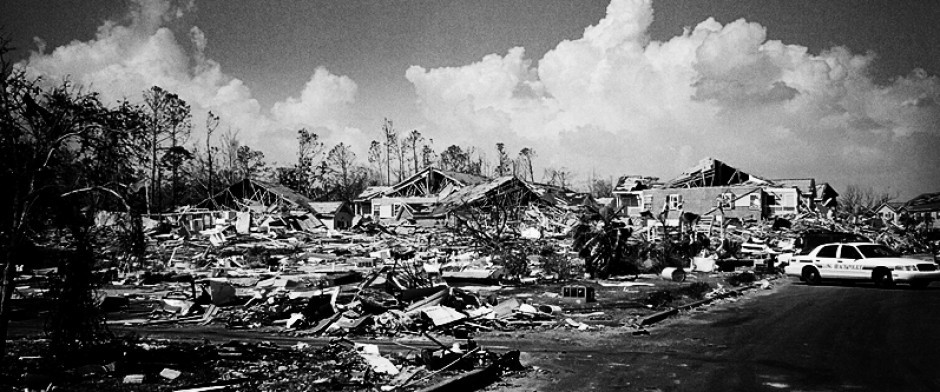Readers of Last Minute Survival are well aware that I have been correctly predicting for years the progression of events in the Middle East toward a total regional conflagration. Speaking broadly of a few key events, I predicted the rise of ISIL, the spread of the “civil war in Syria” to Iraq, and the proxy war between Saudi Arabia (Sunni) and Iran (Shia) going hot. The execution of a prominent dissident Shiite cleric in Saudi Arabia just took this conflict one notch closer to a total war, which the United States is not prepared. The brewing war has triggered a nuclear arms race in the Middle East and it now appears averting a massive war will not be possible. The only question is how to best mitigate the damage.
This escalation has not been fully appreciated in the US and in fact seems to have been discounted by the US Department of State, which will certainly be “surprised” when both countries begin to mobilize their militaries. Both nations are now moving toward a war footing, which has initiated a secret nuclear arms race in the Middle East. Iran knows Saudi Arabia has a far more modern military and the backing of the United States, the Gulf Coast Countries, and possibly Israel, Turkey, and Pakistan. Iran is also threatened by Saudi backed Sunni extremists fighting to overthrow its allies to the west in Iraq, Syria, and Lebanon while being boxed in by another Saudi backed Sunni extremist group, the Taliban, to its east in Afghanistan. Iran knows Pakistan has agreed to supply Saudi Arabia with nuclear weapons. Iran’s generals are not stupid and assess that they must obtain nuclear weapons if they have any hope of successfully defending Iran. They are also racing to improve their anti-access and missile technologies to thwart any type of amphibious invasion from the US while effectively being able to attack Saudi Arabia’s water and oil installations from afar. Further, as I have warned, Iran has been racing to operationally deploy advanced, Russian, S-300 air defense systems, which will effectively deny Iranian airspace to all but 5th Generation fighter/attack aircraft.
As overwhelming as the odds may seem to Iran, Saudi Arabia is justifiably terrified of a powerful Iran. What Iran lacks in high tech military hardware, it has in willpower and individual fighting capability, which will prove far more potent than anything the Saudis can muster for a war. Those of us that have worked with the Saudi military know that the Saudi military is a paper tiger. The Saudis are lazy and incompetent as warriors, but they have a big checkbook that keeps the US military industrial complex in business. This keeps Washington and the Pentagon from ever effectively addressing the issue, which will become brutally apparent when a direct conflict between the nations breaks out. In a head to head fight, Iran’s fighters are better trained, better organized, and far more motivated than even the best Saudi units. In fact, aside from perhaps Jordan, the Arab armies are a joke. Most are probably more likely to shoot each other (intentionally or not) before ever fielding an effective force against an enemy. Further, although Iran has proven its ability to project forces beyond its borders successfully, and would no doubt use Iraq as a staging area for a land invasion of Saudi Arabia, Saudi Arabia has no such force projection capability. Without the ability to actually invade and defeat Iran, Saudi Arabia could only at best win a partial victory over Iran. As such, Saudi Arabia must rely on buying off Washington to intervene and fight its war with American troops and treasure. The Pentagon at least gets this, but what isn’t well understood by either the generals or the White House is that the Saudi backup plan if Washington bulks is to have a credible nuclear weapons capability that they will use if Washington won’t act. The US is totally unprepared for and to date has no policy to even remotely address.
These aren’t Saudi Arabia’s only concerns. Iran is used to hardship and is better able to weather a long war than the Arab countries. For starters, Iran has roughly 50 million more people than Saudi Arabia and many of these are fighting age males. Further, Iran actually has indigenous industrial capability staffed by capable and trained Iranians. Outside of oil and gas pumping infrastructure, Saudi Arabia doesn’t boast much beyond sand. Saudi Arabia is not producing its own weapons or vehicles and doesn’t have a robust capability to domestically provide water and food to its population. Saudi Arabia also has a very small domestic workforce made up of an even smaller number of skilled workers because over 80% of its workers are foreigners. In the event of war, many of these workers would go home leaving Saudi Arabia unable to operate its own economy. Saudi Arabia’s critical infrastructure, to include its water and oil producing facilities, are extremely vulnerable to attack by Iran and simply could not operate if skilled foreign workers were not present in large numbers. If Iran is able to knock out even one major water facility, Saudi Arabia would immediately face a humanitarian catastrophe rendering it nearly incapable of prosecuting a war. On top of all of this, Saudi Arabia is actually politically very unstable. If the welfare checks cease to flow or their secret police are unable to continually torture and oppress the population, the Kingdom will implode.
Saudi Arabia will not admit its weaknesses publicly, but they are well understood. To remedy these weaknesses, Saudi Arabia has made the decision that it will be necessary to possess and use nuclear weapons to decisively defeat Iran. Unfortunately, the Obama White House is not only too ignorant, but too bought to recognize, address, and prevent this future nuclear war. This will ultimately lead to further unnecessary death and destruction we have not witnessed since World War II even if nuclear weapons are not used. Even worse, if the US believes it will be immune from the literal and or figurative fallout from this impending conflict, it is gravely mistaken.
The White House and CIA were caught off guard by the Houthi victories in Yemen, which forced Saudi Arabia to directly invade Yemen. The White House and CIA were also apparently caught off guard by ISIL when the “JV” team rapidly took over large portions of Iraq, Syria, and Libya. We can debate how much of a surprise it really was, but the fact is that US policy did nothing to prevent these disasters is telling of either the ineptness and/or complicity of the political leadership in the US. The fact is the US will be caught off guard again when the next stage of war breaks out between Iran and Saudi Arabia. Just this week, many Sunni countries joined Saudi Arabia and cut diplomatic ties with Iran in a show of sectarian solidarity. This is ominous. The battle lines are being drawn as I type and the only response from the US was to urge calm. This will only worsen the situation and push Tehran to harden its position, which will further solidify the belief in Saudi Arabia that a war is on the horizon.
This next stage of war between Iran and Saudi Arabia will be overtly diplomatic and economic, but covertly, they will both reinforce their proxies with heavier weapons that to date have not been fielded to proxy armies. These will include much more effective anti-tank weapons, armored vehicles, artillery, air defense systems, and chemical weapons for use in false-flag operations. This will only cause greater bloodshed and destruction. Eventually, in Syria, either Saudi backed ISIL forces or Iranian backed Syrian and Iraqi government forces will start to turn the tide and consolidate battlefield victories. Either way, we are facing to worst case scenarios with no off ramp. If ISIL wins, they will gain access to huge amounts of advanced military and industrial resources and war will spread not just through the Middle East, but to Europe and the United States. However, my bet right now is on the Iranian backed forces that now have the full backing of the Russian military, which has proved to be a game changer. If or when it becomes clear that Iran is about to decisively defeat ISIL and Assad will regain power, Saudi Arabia will almost certainly have to open a new front or face an imminent strategic defeat in the region. The new Saudi King so far has demonstrated he is much quicker to use force, but lacks the strategic foresight to effectively employ that force so I anticipate their move will ultimately be a strategic blunder that will blow back and topple him. In the interim, I am making the assessment that in prediction of more ISIL setbacks, Saudi Arabia is actively building an ISIL capability in Afghanistan to divide Iran’s forces and destabilize Russia’s southern border with Central Asia. The collateral impact of this will be disastrous for Afghanistan and the remaining US forces. Once the Taliban are either coopted, joined, or defeated, combined ISIL and Taliban forces will destroy Afghan military units and then overrun Kabul and any remaining US forces. From there, they will threaten Iran, but will no doubt spread further and threaten not only Pakistan and India, but all of Central Asia.
Saudi Arabia is also heavily pressuring the US and Turkey to directly enter Syria to prevent Assad’s resumption of power while simultaneously lobbying Israel to unilaterally strike Iran’s nuclear facilities. If Saudi Arabia is successful, the world will be sucked into a massive war in the Middle East that most likely will become a world war because of direct Russian and Chinese military involvement in Syria. If the King fails, Saudi Arabia will be forced to unilaterally act against Iran with its Gulf partners. This too will lead to a major war in the region and would still likely pull all of the world powers into the conflict. So, just as I had warned, we have indeed reached the point where I warned there would no longer be off ramps and peaceful solutions. Although with real leadership in the US it isn’t impossible to mitigate the damage by directly forcing our political will on the key players by whatever means necessary, the time needed for solutions has all but expired. Now the issue has become how best to keep the US out of the coming war and mitigate the damage, which I will discuss in upcoming articles. Till then, continue to prepare and educate yourself on the events rapidly unfolding in the Middle East.
By Guiles Hendrik
January 4, 2016


